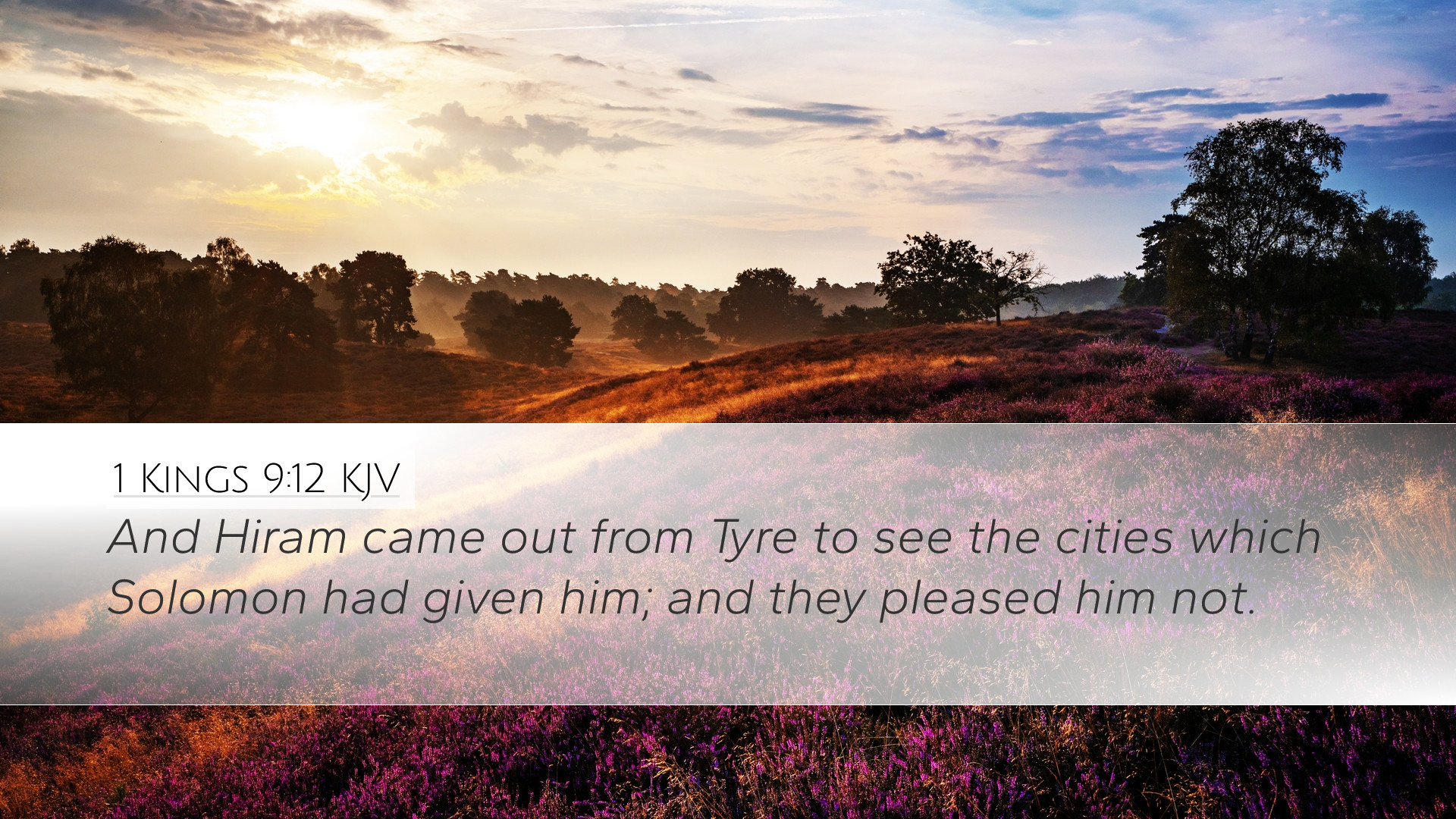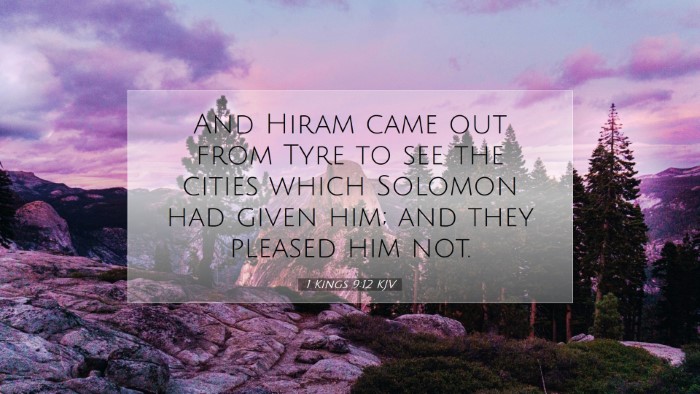Commentary on 1 Kings 9:12
Verse: 1 Kings 9:12 - "And he came to Jerusalem, and stood before the Lord, and offered burnt offerings and peace offerings, and made a feast to all his servants."
Introduction
The passage in 1 Kings 9:12 elucidates the moment when Solomon, having completed significant works, especially the temple, returns to Jerusalem to offer sacrifices to the Lord. This verse encapsulates both Solomon’s devotion and the practices of worship in ancient Israel.
Contextual Analysis
This event occurs after God’s second appearance to Solomon following the temple's dedication (1 Kings 9:1-9). It denotes a pivotal moment where Solomon solidifies his commitment to worship and covenant fidelity.
Historical Background
Matthew Henry notes that this passage occurs amidst a significant shift in Solomon's reign, emphasizing the importance of worship at the newly built temple. Albert Barnes elaborates on the historical context, correlating the building of the temple with the establishment of centralized worship within Israel.
Theological Insights
In 1 Kings 9:12, we find a deep theological significance in the offerings Solomon presents at the temple. Each act of worship carries implications for understanding God’s relationship with Israel.
Burnt Offerings and Peace Offerings
- Burnt Offerings: The burnt offering symbolizes complete surrender and atonement. Adam Clarke indicates that this offering was consumed entirely by fire, representing total devotion to God.
- Peace Offerings: These offerings denote communion and fellowship with God, pointing towards the restoration of relationships and the joy of being in covenant with Him. Barnes emphasizes that these offerings reflect Solomon's desire to maintain peace with God and among his people.
Solomon’s Leadership and Worship
Solomon’s act of leading his servants in a feast after the sacrifices illustrates the communal aspect of worship in ancient Israel. This public demonstration of faith serves not only to honor God but also to unify the people in their devotion.
Lessons for Leadership
- Modeling Worship: Leaders are called to model their commitment to God. Solomon’s actions encourage pastors and leaders in the church today to lead their congregations in both personal devotion and corporate worship.
- Community Engagement: Solomon’s invitation to his servants signifies the importance of fostering a community centered around worship, illustrating that faith should be communal and inclusive.
Reflections on God’s Response
While this verse outlines Solomon's actions, it sets the stage for understanding God’s response in subsequent verses. God honors sincere worship, and Solomon’s dedication culminates in divine blessing and warnings (1 Kings 9:3-9).
Practical Applications
- Worship as a Priority: Churches today must prioritize worship, making it central to their collective identity and mission.
- Sacrifice and Community: Believers are reminded that true worship involves sacrifice not just individually, but within the community of faith.
Conclusion
In 1 Kings 9:12, we see a rich interplay of worship, leadership, and community. Solomon stands as an archetype of a faithful leader who dedicates himself and his reign to God through acts of worship. For contemporary readers—pastors, students, theologians, and scholars—this passage raises vital questions regarding our own commitment to worship, leadership in faith, and the collective aspect of our journey with God.


